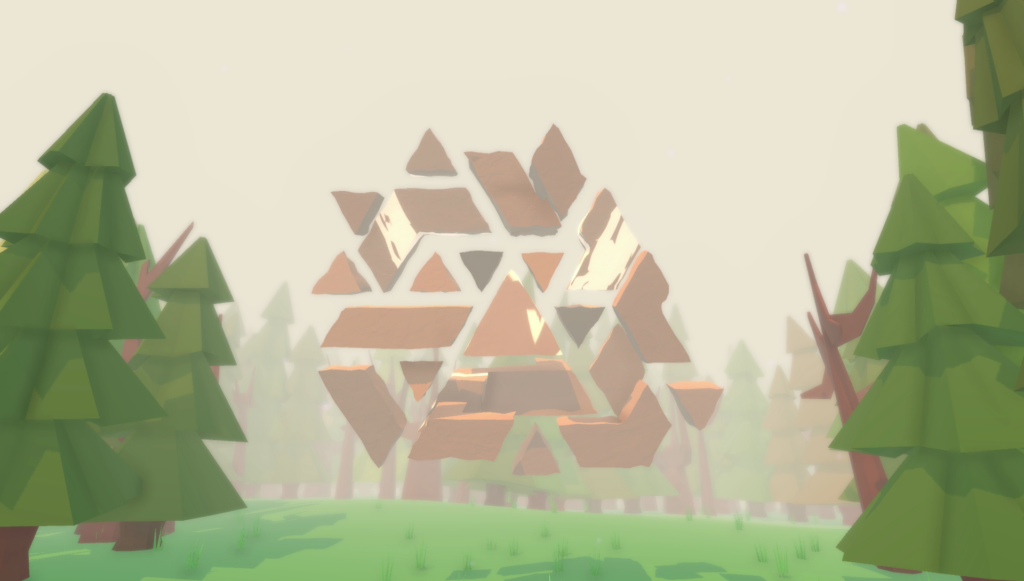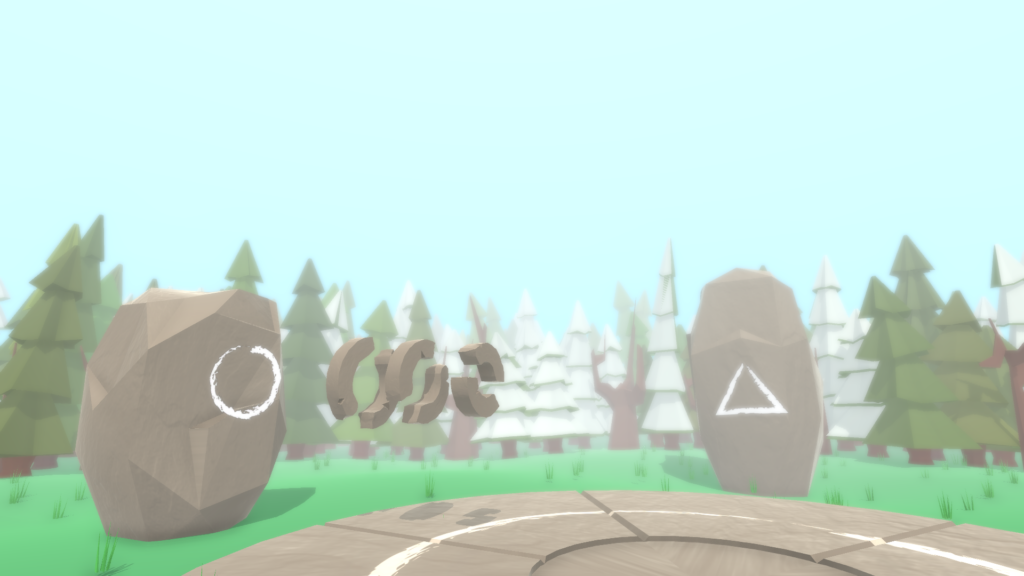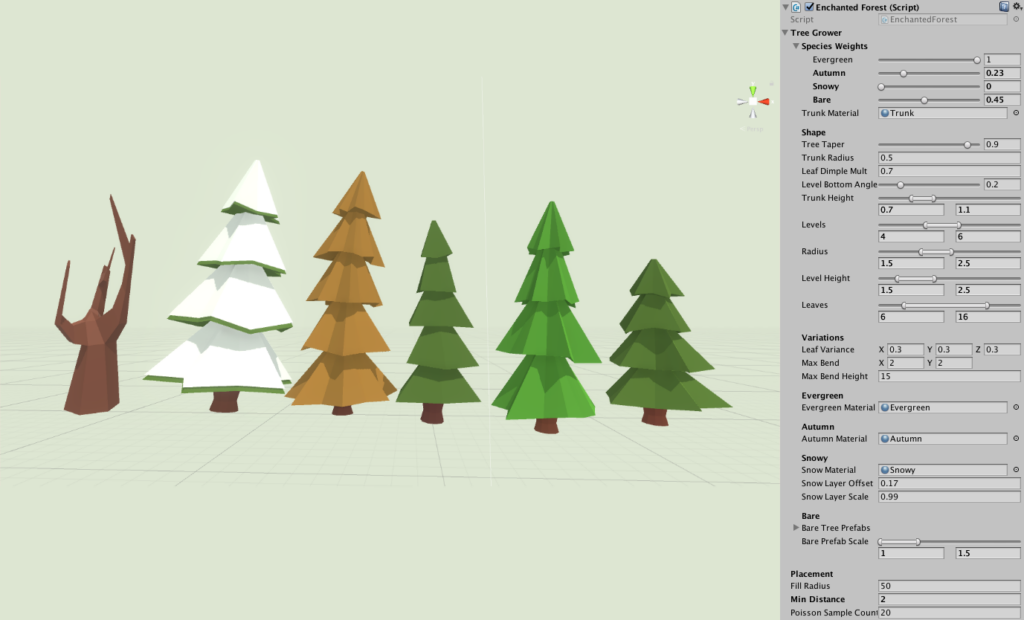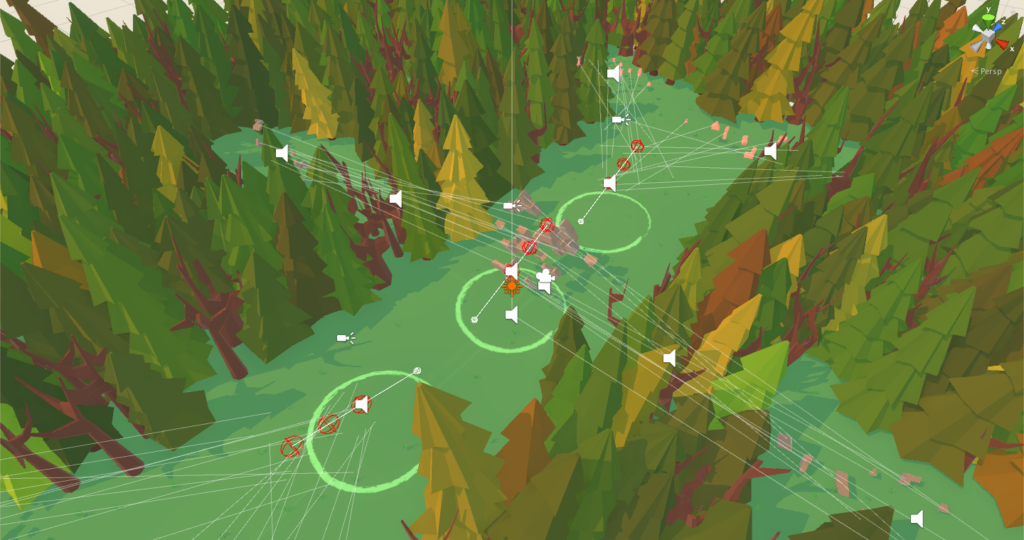A meditative puzzle game about exploring a changing forest and reconstructing ancient runes.
You’re an adventurous druid wandering through a mystical forest rumored to contain passageways marked by ancient runes. Explore the forest, collect lost pieces, and reconstruct the runes to open up new paths deeper into the forest.
A partner and I created The Forest View at USC Games. I designed the game’s procedural systems and modeled low-poly fantasy runes and rocks for the project. We worked with a composer from the Berklee College of Music for the game’s soundtrack.
Game design
The game’s core loop is:
- Explore levels to gather shards
- Assemble the shards at a shrine to find a perspective where the shards align
- Manifest a new rune
- Use this rune to unlock new clearings and levels and repeat
The game was inspired by Monument Valley‘s elegant perspective mechanics and introspective games like Journey in how they provide players a space to meditate through gameplay, without a tight game loop or strict goals.
A procedurally generated forest
The entire forest is procedurally generated as players move through each level. Every time a player returns to an area, it’s slightly different. When players discover the forest evolving around them, this creates a magical, mysterious feeling of the forest having life outside the bounds of the player’s perception.
Every tree in the game is procedurally generated per level and season. The gentle hills are formed from layers of Perlin noise, and trees are placed using Poisson sampling to guarantee a specific density.
The game has many audio layers and has a continuous mix between levels and the hub world to tie the whole experience together.









